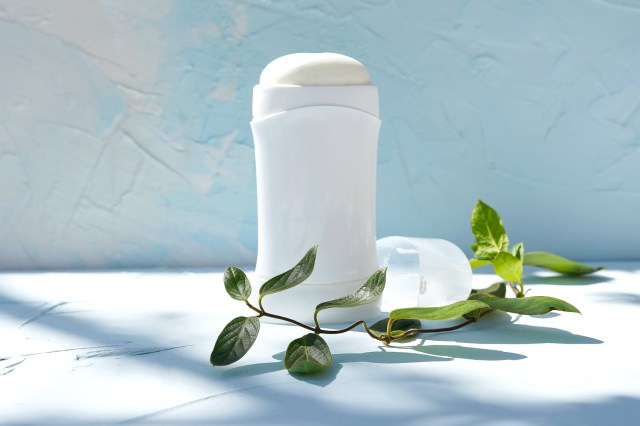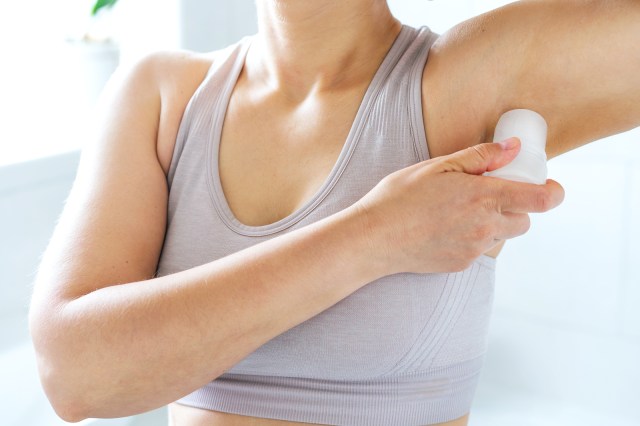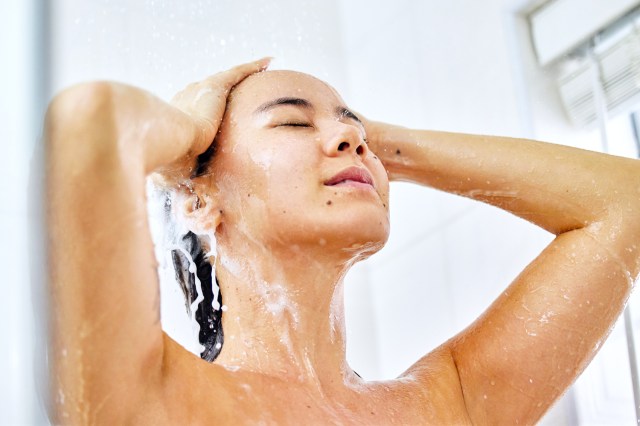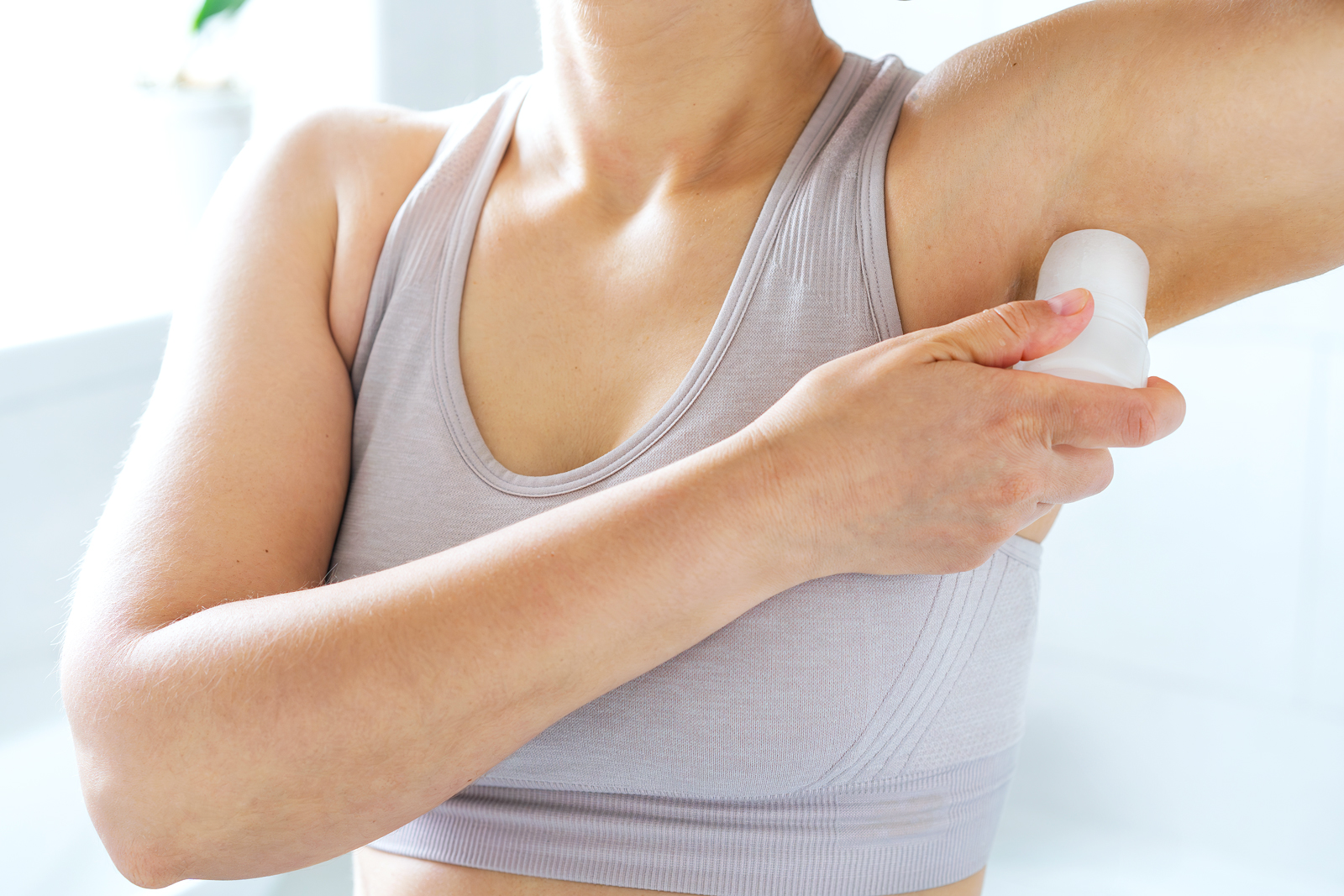We independently evaluate all recommended products and services. If you click on links we provide, we may receive compensation.
If you woke up one day and realized your local drugstore suddenly had more deodorants on offer than ever before, you’re onto something. In the past few years, the deodorant industry has boomed — likely due to consumers’ growing interest in finding natural (or, at the very least, elevated) alternatives to the powdery-smelling deodorant sticks we all used during our youth.
One of the most recent newcomers in the industry is whole-body deodorant, made popular by brands such as Lumē and Native. You might be tempted to try the head-to-toe odor-reducer, but is full-body deodorant really necessary? To answer that question, we tapped double board-certified dermatologist Dr. Karan Lal, D.O., M.S., FAAD. Ahead, get the 411 on whole-body deodorant, its benefits, and its potential drawbacks.

What’s the Deal With Whole-Body Deodorant?
Whole-body deodorant is, as you could probably guess, deodorant made for use on your entire body. (Lumē advertises its formulas as suitable for “pits, privates, and beyond.”) Unlike aluminum antiperspirants, which physically block sweat glands to help reduce perspiration, deodorants target the bacteria that cause body odor. That means whole-body deos are aluminum-free, though Lumē does also make a sweat-reducing antiperspirant with aluminum salts.
“When people smell, it usually comes from certain areas such as the armpits, groin, [or] feet,” Dr. Lal explains. “These are areas that get colonized with bacteria that break down sweat and lead to foul odor.” By killing (or inhibiting the growth) of these bacteria, whole-body deodorant helps reduce B.O. Many also contain fragrances to help promote a fresh, clean scent.

How Does Whole-Body Deodorant Differ From Regular Deodorant?
While you could technically use your standard deodorant (almost) anywhere, whole-body deodorants are designed for that purpose. They come in a range of different formats, from creams to sprays to powders and even wipes, making them easy to use on any part of the body. And they often contain additional ingredients to help improve the skin’s look and feel. Lumē’s classic whole-body deodorant, for example, contains mandelic acid, aloe vera, and caffeine — all noteworthy skin care ingredients — and helps brighten and even the skin as it neutralizes odor. AKT London’s, meanwhile, boasts a nourishing blend of vitamin E, calendula, and shea butter.

Is Whole-Body Deodorant Actually Necessary?
According to Dr. Lal, most people don’t need a full-body deodorant — often, a few lifestyle adjustments are all that’s needed to keep B.O. at bay. However, if you sweat excessively (a condition known as hyperhidrosis), it may be worth considering.
That being said, it’s important to take precautions and choose the right formula for your needs. Dr. Lal notes that the fragrances in scented deodorants “can put patients at risk for irritation and allergic contact dermatitis.” This may be especially true in more delicate areas, such as the groin and under-breast area. If you’re prone to sensitivity, fragrance-free is the way to go. It’s also a good idea to do a patch test before applying a new product anywhere to ensure your skin doesn’t react poorly to it.
Additionally, it’s important to note that some parts of your body aren’t supposed to smell fresh all the time, and definitely aren’t supposed to smell of flowers or citrus fruits. Dr. Jennifer Gunter, an OB-GYN and author of several bestselling books on menopause and vaginal health, is not a fan of the way some full-body deodorant brands market their products to people who might be insecure about their scent in those areas.

Additional Ways To Reduce Body Odor
If you tend to run hot and find yourself sweaty most days, don’t stress — there are plenty of things you can do to help keep B.O. to a minimum. Here are some useful tips to try:
- Maintain a consistent showering schedule. It seems pretty obvious, but practicing good hygiene is the best way to keep body odor at bay. Aim to wash your body with soap and water at least several times per week, more often if you get sweaty. (If you don’t wash your hair every day, consider investing in a shower cap.)
- Swap out your body wash. According to Dr. Lal, “using a cleanser with salicylic acid and/or benzoyl peroxide can reduce body odor by killing the bacteria on the skin that [cause it].” We love Nécessaire The Body Acne Wash — it contains 2% salicylic acid and helps target body breakouts while brightening and replenishing the skin.
- Opt for breathable, natural fabrics. Avoid clothes that trap sweat and instead look for options made of lightweight, breathable fabrics such as cotton or linen.
- Manage your stress. According to the Cleveland Clinic, stress can trigger your apocrine sweat glands to go into overdrive, which can contribute to body odor.
- Pay attention to your diet. Certain foods, such as garlic, onions, and cabbage, may exacerbate body odor. If you find yourself smelling a little funkier than usual, your diet may be to blame.
- Visit a doctor. If you’ve made lifestyle adjustments and your B.O. isn’t improving, it may be worth visiting a doctor. They have access to treatments and medications that can help reduce how much you sweat, which can, in turn, reduce body odor.
This article is for general informational purposes only.
Affiliate Disclaimer Medical Disclaimer
















 Unique Beauty is free for all users.
Unique Beauty is free for all users.